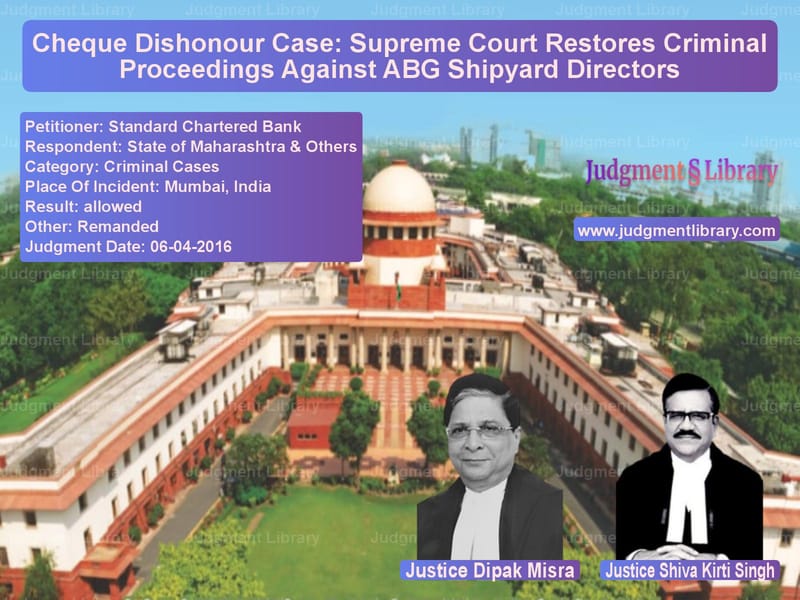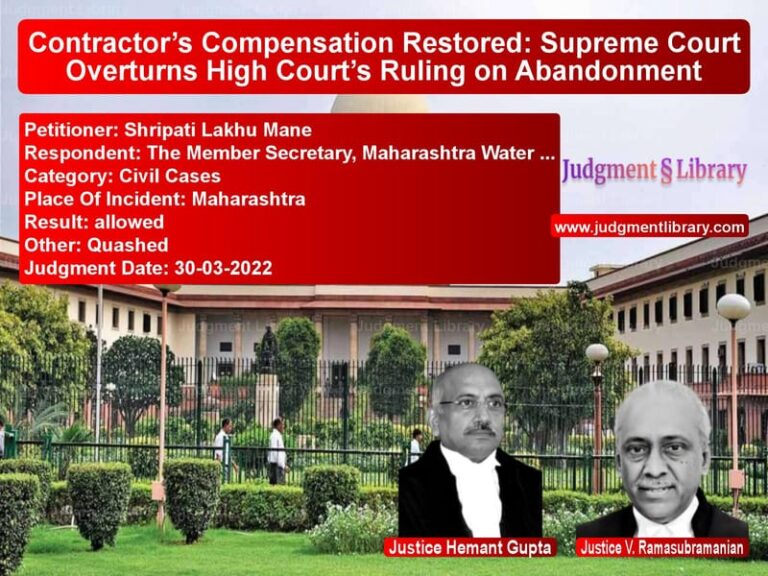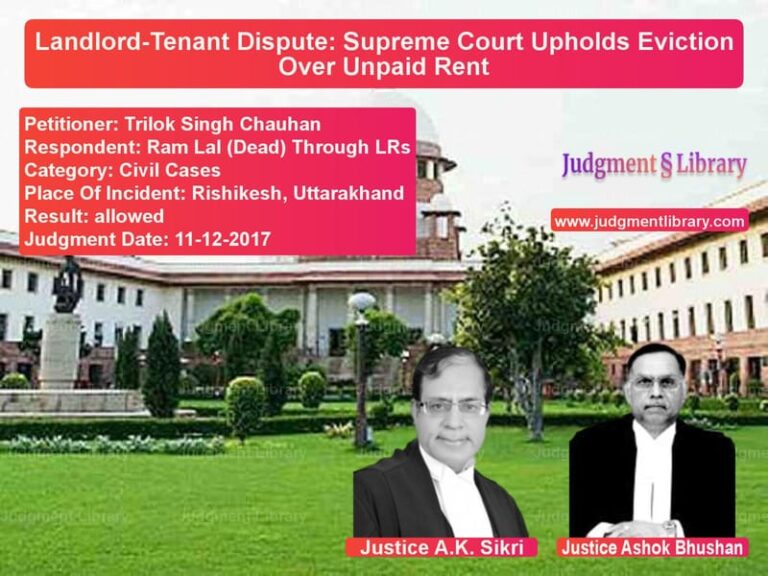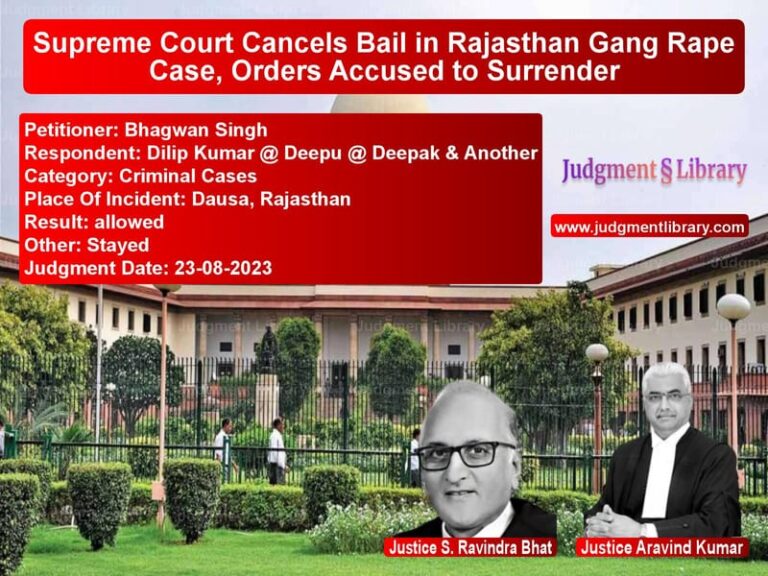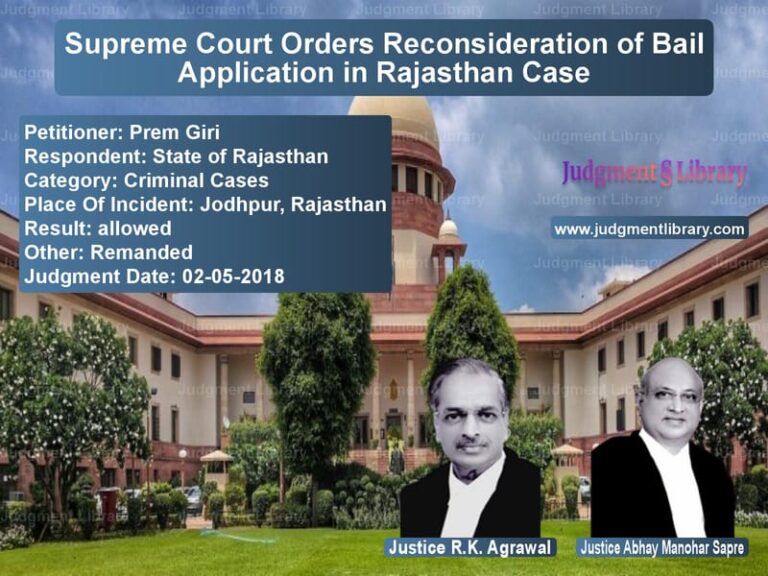Cheque Dishonour Case: Supreme Court Restores Criminal Proceedings Against ABG Shipyard Directors
The Supreme Court of India recently ruled in Standard Chartered Bank v. State of Maharashtra & Others, addressing the criminal liability of company directors in cheque dishonour cases under Section 138 of the Negotiable Instruments Act, 1881 (NI Act). This case revolved around the liability of directors in a loan default by ABG Shipyard Ltd., where the company had issued post-dated cheques that were dishonoured.
Background of the Case
The appellant, Standard Chartered Bank, had granted a short-term loan of Rs. 200 crores to ABG Shipyard Ltd. on April 28, 2012. The company agreed to repay the amount in three installments by issuing three post-dated cheques for Rs. 66.67 crores (dated December 15, 2012), Rs. 66.67 crores (dated January 15, 2013), and Rs. 66.66 crores (dated February 15, 2013).
However, when these cheques were presented for clearance, they were dishonoured due to ‘insufficient funds’ and ‘account blocked’ status. The bank issued statutory demand notices under Section 138 of the NI Act, but the company failed to make payments. Consequently, Standard Chartered Bank filed three separate complaints against ABG Shipyard Ltd. and its directors before the Metropolitan Magistrate, Mumbai.
The Magistrate took cognizance of the complaint and issued summons to all the accused, including the Chairman, Managing Director, Executive Director, and Whole-Time Directors of the company. However, two of the directors (accused nos. 4 and 5) challenged the summons in the Bombay High Court, which quashed the proceedings against them on the ground that there were no specific allegations connecting them to the dishonour of cheques. Standard Chartered Bank appealed against this order in the Supreme Court.
Legal Issues Considered by the Supreme Court
- Whether directors of a company can be held criminally liable for cheque dishonour without specific allegations of their involvement.
- Whether the Bombay High Court was justified in quashing the summons against the directors based on the absence of detailed allegations in the complaint.
- Whether the provisions of Section 141 of the NI Act, which hold officers in charge of a company liable, were properly applied by the High Court.
Arguments by the Appellant (Standard Chartered Bank)
- The complaint clearly stated that the accused directors were responsible for the day-to-day operations of ABG Shipyard Ltd. and had knowingly issued cheques that were later dishonoured.
- Since the directors were involved in securing the loan and issuing the cheques, they were liable under Section 138 read with Section 141 of the NI Act.
- The Bombay High Court quashed the summons without considering the explicit allegations made against the accused directors in the complaint.
- The directors’ liability was established under Section 141, which provides for vicarious liability of officers responsible for the conduct of the company.
Arguments by the Respondents (ABG Shipyard Directors)
- The directors contended that they were not involved in the actual issuance of cheques and should not be held personally liable.
- They argued that the complaint failed to mention their specific role in the dishonour of the cheques.
- The Bombay High Court was correct in ruling that there were no specific allegations connecting them to the dishonoured cheques.
- They relied on Supreme Court precedents that require clear and direct allegations before a director can be held liable under the NI Act.
Supreme Court’s Judgment
The Supreme Court ruled in favor of Standard Chartered Bank, setting aside the Bombay High Court’s decision and reinstating the criminal proceedings against the accused directors. The key findings were:
- The complaint contained sufficient averments indicating the involvement of the accused directors in the dishonoured cheque transactions.
- Section 141 of the NI Act creates vicarious liability for directors if they are responsible for the conduct of the company’s business.
- The Bombay High Court erred in quashing the summons at the preliminary stage without considering the legal principles governing cheque dishonour cases.
- The complaint’s statements that the accused were in charge of day-to-day business and had issued cheques with knowledge of insufficient funds were sufficient to proceed with the trial.
The Court observed:
“The High Court has fallen into grave error by concluding that there are no specific averments in the complaint for issuance of summons against the accused directors. The complaint sufficiently establishes their role in the offence.”
The Supreme Court relied on its earlier rulings in S.M.S. Pharmaceuticals Ltd. v. Neeta Bhalla and Gunmala Sales Pvt. Ltd. v. Anu Mehta, which clarified that directors can be held liable under Section 141 if there are sufficient allegations indicating their involvement.
Implications of the Judgment
- Reinforces that directors cannot evade criminal liability merely by claiming lack of direct involvement in cheque transactions.
- Clarifies that allegations in a complaint need not be overly detailed but must establish prima facie involvement.
- Strengthens the enforcement of Section 138 and 141 of the NI Act by preventing directors from using procedural loopholes to escape liability.
- Ensures financial institutions and lenders have legal recourse against corporate fraud and cheque dishonour cases.
Conclusion
The Supreme Court’s ruling reaffirms the principle that directors of a company cannot be absolved of liability in cheque dishonour cases simply by claiming ignorance. By restoring the criminal proceedings against the accused directors, the Court ensured accountability in financial transactions and reinforced the importance of compliance with the Negotiable Instruments Act. This decision will serve as a precedent for similar cases involving corporate defaults and financial fraud.
Don’t miss out on the full details! Download the complete judgment in PDF format below and gain valuable insights instantly!
Download Judgment: Standard Chartered B vs State of Maharashtra Supreme Court of India Judgment Dated 06-04-2016-1741854604234.pdf
Direct Downlaod Judgment: Direct downlaod this Judgment
See all petitions in Fraud and Forgery
See all petitions in Cheque Dishonour Cases
See all petitions in Corporate Compliance
See all petitions in Judgment by Dipak Misra
See all petitions in Judgment by Shiva Kirti Singh
See all petitions in allowed
See all petitions in Remanded
See all petitions in supreme court of India judgments April 2016
See all petitions in 2016 judgments
See all posts in Criminal Cases Category
See all allowed petitions in Criminal Cases Category
See all Dismissed petitions in Criminal Cases Category
See all partially allowed petitions in Criminal Cases Category

